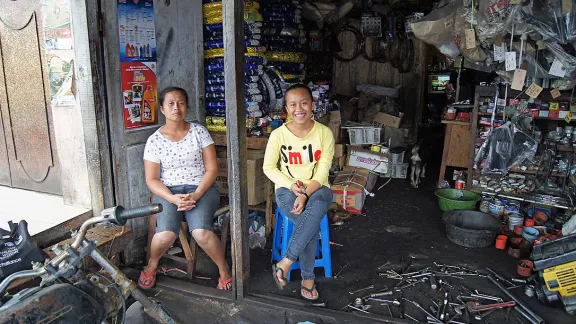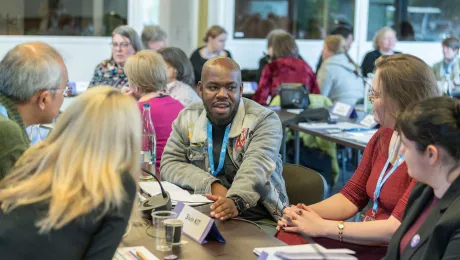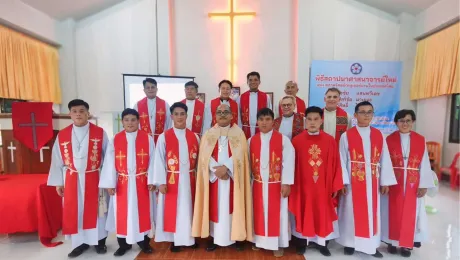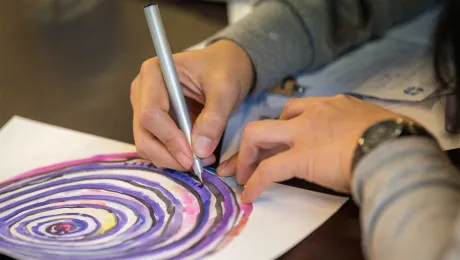
Elfrieda Turnip and her daughter Joanna used the CUM loan to boost their motorcycle repair business. Photo: LWF/C. Kästner
Church Initiative Helps Small Businesses and Unites Farmers
(LWI) – It is not a good time for idle chit-chat with Elfrieda Turnip. The owner of a small motorcycle shop is busy. Three young men with motorcycles are standing in front of the entrance, there are repairs to be done, one is asking for a special spare part. Two mechanics kneel on the floor and turn screws with oily hands. The smell of motor oil and metal fills the hot summer afternoon. Business is going well.
Still, Ms Turnip takes the time to explain how she came to be a successful businesswoman. The motorcycle shop existed for years, like many others on the street. There are a lot of motorcycles in Indonesia, and repair shops like hers line the streets. What’s different though is that Ms Turnip has a storage room full of spare parts. A loan from the Credit Union Modifikasi (CUM), a bank belonging to the Simalungun Christian Protestant Church (GKPS) enabled her to buy them in advance instead of ordering when the need arose. “I have more customers now, because they know we are well equipped”, she says. “We can afford to stock the expensive parts, so we can use them immediately. Customers do not have to wait until we have ordered them”.
Check Customer’s Backgrounds
Ms Turnip is a member of the local GKPS congregation, but that was not the only reason she was given a loan. Apparently her business plan convinced the management, as Rev. Liharson Sigiro, the CUM Manager, explains “We have loans for consumption – when people need to pay school fees or buy a motorcycle – and for starting a business. We do a survey on how the applicants will use the money before we give loans”.
The CUM work in a typical Credit Union scheme. People usually make a deposit and become members of the CUM before they are able to apply for a credit themselves – up to 15 million Indonesian Rupiah, which is less than 150 Euro. They pay one percent interest. Still, it makes a difference. “It is not like a bank” Elfrieda says. “For a bank we need a lot of complicated documents. Here I can get the loan easily because I have the deposit. We are treated very well”.
Opening an account is not mandatory, but Ms Turnip is very satisfied with her investment. “We also get interest on the deposits” she says. “The money increases every month!”
Stability for Farmers and Consumers
Credit Unions seem to be a success story for the churches as well. GKPS according to Sigiro has four similar enterprises, “and ours is not the biggest of them”. Their target is to win 20 percent of the 220,000 GKPS members. Most of them are small or medium-scale farmers, and this is where the CUM sees its main value. It joins small farmers into a collective for selling and buying seeds. “Normally each farmer would sell his crop separately. They would negotiate the price each for himself”, Sigiro says. “By joining together, they can receive a better price for selling their good”. The CUM collects rice and exports it to Australia. “It ensures stable prices and consumers”, Sigiro says. “Also, the consumer side has better quality control”.
The CUM which started in November 2006 now has 9.730 members. The main building is a storage room similar to Elfrieda’s shop, where shelves with green and purple folders fill most of the office space. Most of the customers are members of the GKPS church, but not all. Manager Sigiro claims they also belong to other denominations and about one percent are Muslim. “We do not care about their faith as long as they follow the rules” he says.


